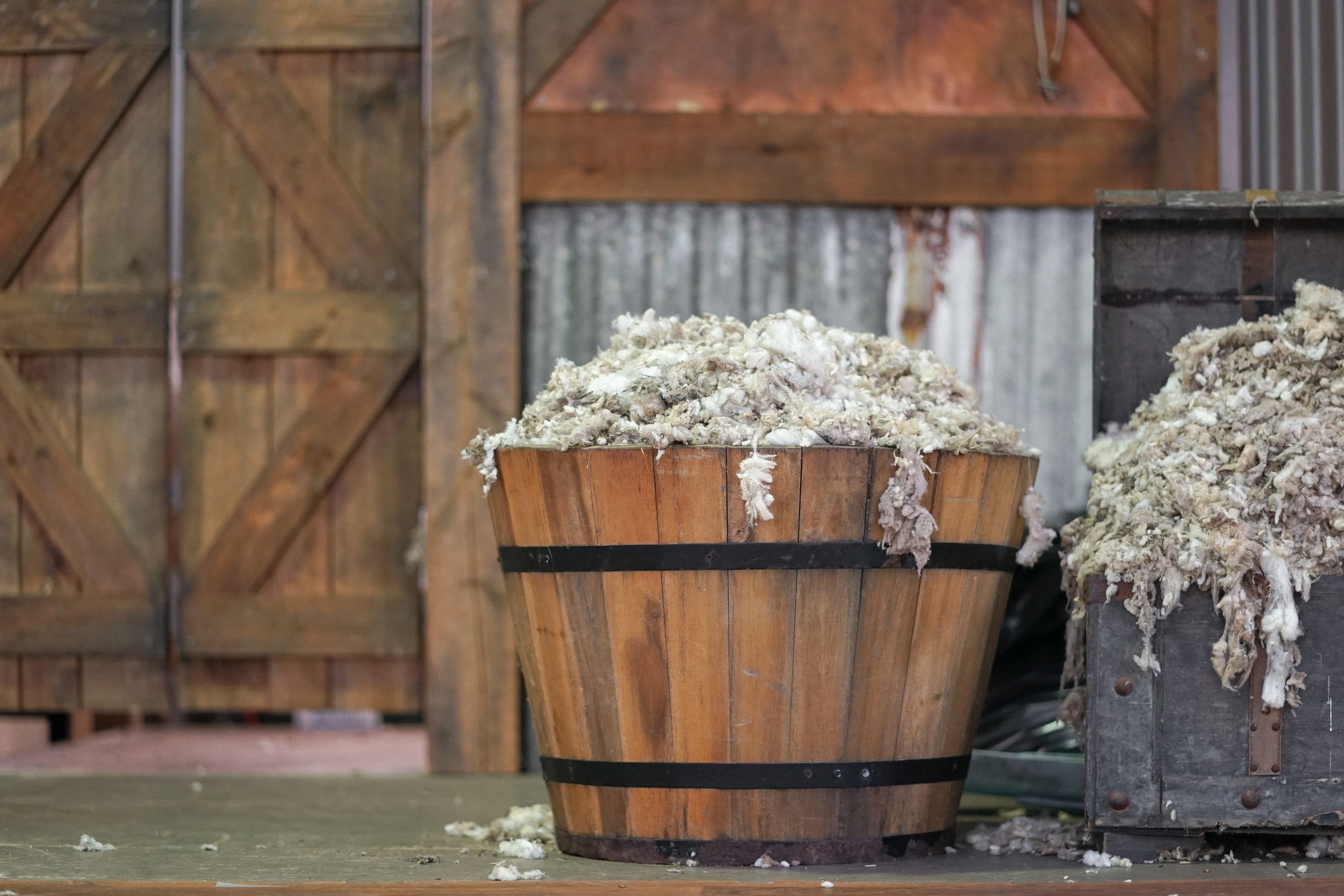Wool: A natural bio-enhancement for gardens

Wool (yes, the fiber grown by sheep) has been seeing increased use in gardens due to the numerous soil and plant benefits. This renewable, natural fiber can be used as mulch right off sheep or integrated into the soil as wool pellets. Given the slowed wool market, there are sheep producers looking to get rid of waste wool at an affordable price. Whether growing flowers or vegetables in a large garden or small planters, wool serves as a sustainable option for helping your plants thrive. Below are three benefits of wool for your garden.
Benefits for gardens
Wool provides natural nitrogen.
Natural constituents of wool include sulfur, phosphorus, potassium, and mostly nitrogen. Many times, fertilizer is applied to provide nitrogen to the soil to boost plant yields. Wool pellets can provide about 9% nitrogen. When compared to commercial fertilizer, wool pellets generate the same or greater vegetable yields. Studies have even seen 58 to 69% larger tomatoes when fertilized with wool compared to no fertilizer (Bradshaw and Hagen, 2022).
Wool increases soil water holding capacity.
Wool is like a sponge and can hold 20 to 30 times its weight in water. It then releases it slowly into the soil. In potted plants in particular, wool increases water use efficiency by decreasing evaporation and increasing transpiration (Juhos, et al., 2023). Mixing wool into the soil allows water to be stored right next to the roots and increase water retention and plant water use. Increasing the water-holding capacity of soil is a sustainable way to conserve water.
Wool keeps unwanted weeds and slugs away.
Weed barriers or sprays can be costly! When applied on top of the soil as a mulch, the dense fleece makes it difficult for weeds to penetrate. Anecdotally, people have also seen a reduction in the number of slugs in their garden when using wool as mulch.
It can take at least two years for wool to fully decompose, so you can see these benefits for multiple growing seasons (Broda, et al., 2023).
Purchasing garden wool
Want to try using wool in your garden, raised beds, or pots? South Dakota is the sixth largest state in sheep production, so why not incorporate a local, all-natural bio-enhancer into your soils? Wool pellets can be found online and in a select few home improvement retailers. You can also talk to local producers to inquire about waste wool! You can also contact SDSU Extension Sheep Field Specialist, Jaelyn Whaley, for help connecting with wool sellers/producers.



